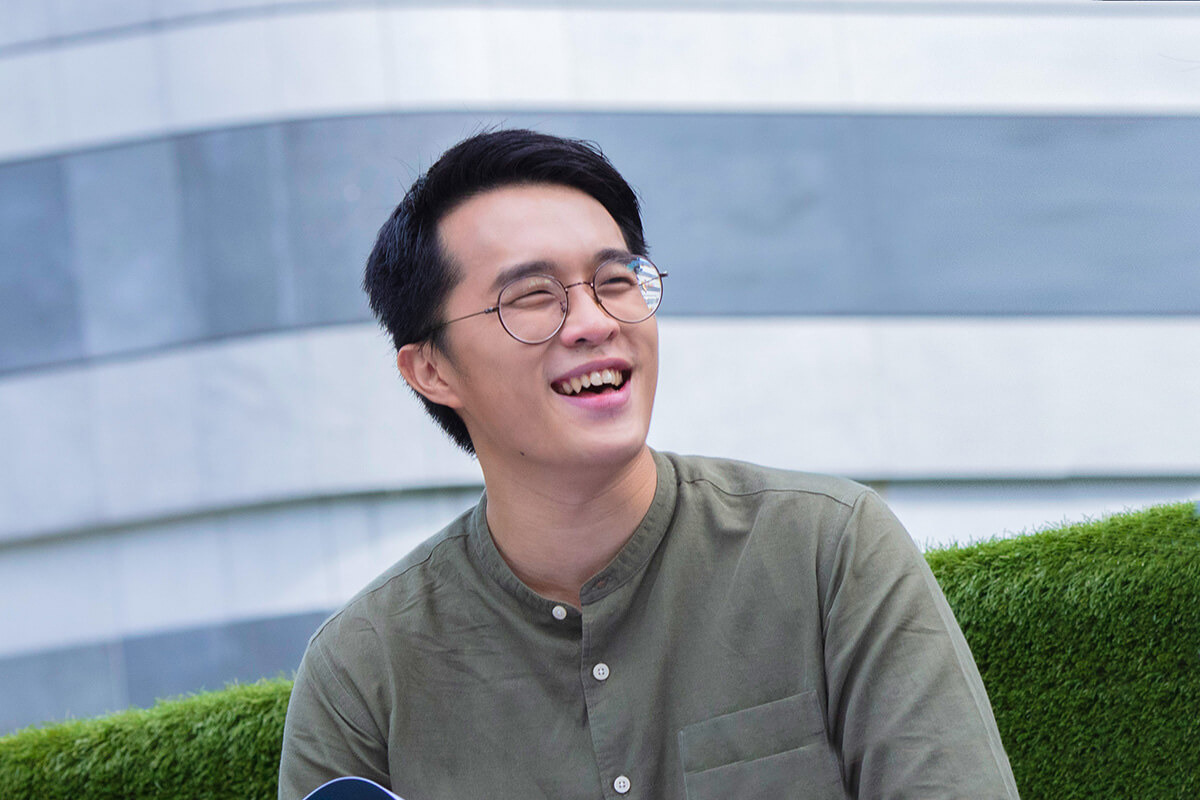
With the second semester of the academic year in full swing, our team at ValueChampion has resumed our university interview series. Our goal is to share the stories of top students from leading universities in order to help prospective students get a better feel for the university experience.
In this article, we’ve interviewed Merrill Cheong who is a double-degree undergraduate at the Singapore Management University (SMU) Lee Kong Chian School of Business and School of Social Sciences. Merrill studies Organisational Behaviour & Human Resources as well as Psychology, and plans to pursue a career as a HR professional for a multinational corporation.
What influenced you to pursue your degree? What excites you intellectually?
For me, what caught attention when choosing a degree was the simple question of “Why do people do things the way they do?”. I was interested mainly in the thought process behind how people made decisions under large amounts of stress, especially leaders in positions of high power. From there, I found that both the Business degree and the Social Sciences degree had what I was looking for. Thankfully, I was saved the conundrum of deciding between the two when I was eventually offered a double degree in both schools at SMU.
Did you consider any other schools? If so, why did you ultimately choose SMU?
I did consider many other schools (as all Singaporeans are known to do). Firstly, I was considering going overseas to study, but was eventually dissuaded due to the high-cost requirements and relocation problems that came along with it.
I applied to all the major universities in Singapore, but eventually chose SMU due to my experience with my seniors (who were then just beginning their university lives). I felt that SMU had a special buzz—a youthful energy that I was able to experience through my limited interactions around school before I enrolled. Adding to that, I really liked the teaching style of SMU—the close interaction with faculty and the small class sizes were very attractive to me.
How would you describe your experience in your programme at SMU?
I think overall my four years here have been nothing short of a rollercoaster ride. There have been many highs and lows—studying is never easy, but I feel that the entire experience has been exciting and memorable, to say the least. I remember fondly the many late nights I’ve had with my friends rushing out projects and studying together—and from there, the many bonding sessions over late meals. These experiences seem to embody both the highs and lows of student life.
Honestly, I think being placed in a city campus where there are many facilities available for students to enjoy, adds to this experience. Where else in Singapore can you decide, in the spur of the moment, to head out for supper in the middle of the night and still have many eateries available within walking distance? From the head-scratching moments to the laughs and joy, this, to me, encompasses what I truly experienced in SMU.
What has been your favourite course so far, and why?
For me, my favourite course has been an organisational behaviour and human resources module called ‘Training and Development’. What stood out for me was the hands-on experience I had in the course. Each group had to craft out more than one training experience for the entire class and had to treat the class as if we were participants who signed up for this course.
I truly enjoyed how each week was interactive, with each group coming up to “train” us and share with us their ideas on how to improve training sessions. This was the class where I felt least like a student, even though I was taking down notes and learning the theories behind effective training. I felt that I was having fun participating and worrying less about the schoolwork that the module would bring. This, and having a highly participative and supportive professor, truly made the experience fun and enriching.
What type of co-curricular activities are you involved with?
I was involved in many co-curricular activities in my earlier years in university. At the start, I was involved in many of the Business Club (Bondue) events as an organising committee member. I truly enjoyed the experience of planning an event and challenging myself to learn new skills (such as sales pitching and negotiation, for example), so much so that I subsequently went on to run for Bondue’s Executive Committee.
Aside from that, I was part of SMU Stereometa, a student club for aspiring DJs to hone their skills. From there, I picked up the basics of how to be a club DJ and had the opportunity to spin for some school and private events.
Have you had internships? If so, how did you search for internship opportunities?
I have had two internships so far in my school term. The first one was at Infineon Technologies, and I found that through the school’s online job portal (OnTrac). I was lucky enough to get the internship, even though it was almost one week till the job’s commencement date.
The second one was at Mercer, and I found that internship through networking at one of the events Bondue had hosted when my ExCo was still in office. It was truly a stroke of luck that I was able to forge a lasting impression during the event; and after contacting them over a few months, I managed to secure an internship for the upcoming summer.
What are your career aspirations?
For me, I really hope I can make my mark as an HR professional and am looking at the roles of as either a consultant or a trainer. I love the idea of solving people problems, and I feel that today’s working environment places a lot more attention towards how employees feel engaged with the jobs they are doing.
Of course, the dream is to have a wealth of experience to break out on my own and run my own training programmes in the future. But, for now, I really hope I can start off as a HR generalist and work my way up from there.
How has SMU helped prepare you for this type of career?
SMU has really helped develop my interest in this sector. The ability to do two degrees has really helped my foundational knowledge and has given me the privilege to look at problems through different lenses. I feel that business ends up focusing on the practical and applied aspects of a problem, while psychology tends to look at the theoretical basis behind each problem.
Secondly, I feel that SMU has really taught me how to speak out and present myself. As my career aspiration involves training and development, I believe that public speaking skill is a big must. As these are soft skills that require much practice, I feel that SMU’s pedagogy hones this constantly through the many presentations and proposals we must go through.
Lastly, I love the workshops that SMU requires students to go through as part of the Finishing Touch programme. I felt that I learnt a lot about interview skills, personal branding and grooming, which no other courses teach.
How are you financing your education? What resources did you use to learn about financing options?
Currently, I am lucky enough to be covered under SMU’s Lee Kong Chian Scholars’ Programme, which funds my entire four years of education. I learnt about this mainly through word-of-mouth, and through the official talks given by the school before I started my university life. Adding to that, I was made aware of financing options in SMU through information posted online—in blogs and through other SMU websites.
Are there any resources that would help you with career development that you’re not currently getting?
I wish there were more opportunities to visit companies and know more about extremely niche fields of work. Usually, the company visits are booked out too fast, and even then, there are not that many opportunities for students of HR or Psychology as the companies that are visited mainly target students with finance or analytics backgrounds, in my opinion.
Where do you see yourself in 5 years?
I see myself hopefully working for a large multinational corporation doing HR, working my way up to a managerial position! From there, I hope to be able to take time off to perhaps pursue a master’s degree or another form of higher education. As being a trainer requires some form of professional accreditation and knowledge, I feel that this is a milestone I hope to hit in the future!
